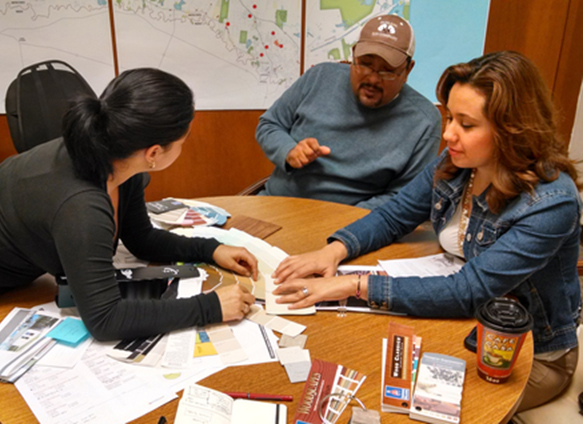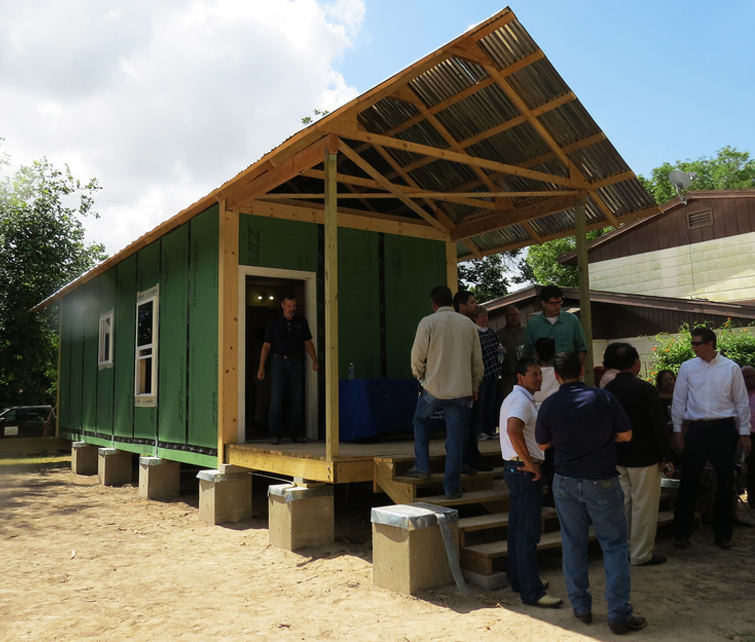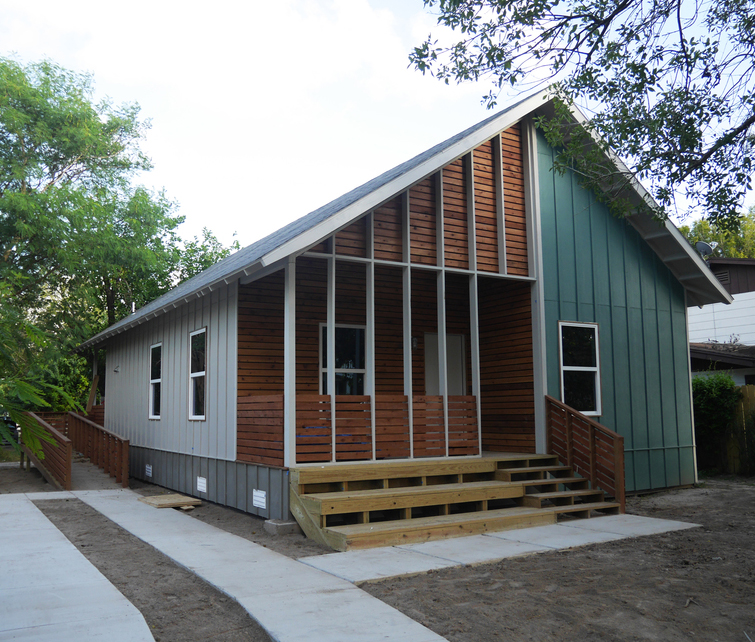Focus Area: Infrastructure
The quality of infrastructure in the Texas colonias can vary widely. Garden hoses and extension cords often stretch from one trailer home to another. It is common to see wooden planks propped over the flood-prone ground as pathways. About 20 percent of these colonias still lack basic infrastructure, such as safe drinking water. However, there have been significant improvements since 2006.

A small, home-constructed pipeline connecting this home to the subdivision’s water line

Construction of sewer pipelines to connect local businesses and homes to adequate water and sewer services in a Cameron County colonia
INFRASTRUCTURE IN TEXAS COLONIAS IMPROVING
Between 2006 and 2014, the state of Texas invested millions of dollars in infrastructure projects in the six counties highlighted in the Dallas Fed report. Since 2006, almost 290 formerly underdeveloped colonias have acquired basic infrastructure, such as paved roads, water systems and solid waste disposal. The chart and table below show progress made in recent years.
| Infrastructure Improving in Border Colonias |
|---|
 |
| NOTE: This chart represents data for only six counties: Cameron, El Paso, Hidalgo, Maverick, Starr and Webb counties. See Table 2 for meaning of color classification. DATA SOURCE: Colonia Initiatives Program Progress Legislative Reports, Texas Office of the Secretary of State. |
| Texas Colonia Classification System | ||||
|---|---|---|---|---|
| Green | Yellow | Red | Unkown | |
| Drinkable water | ✓ | ✓ | ✗ | — |
| Wastewater disposal | ✓ | ✓ | ✗ | — |
| Legal plats | ✓ | ✓ | ✗ | — |
| Paved roads | ✓ | ✗ | — | — |
| Adequate drainage | ✓ | ✗ | — | — |
| Solid waste disposal | ✓ | ✗ | — | — |
| DATA SOURCE: Senate Bill 99: “Tracking the Progress of State Funded Programs that Benefit Colonias.” Prepared by the Colonia Initiatives Program, Texas Office of the Secretary of State, 2010. | ||||





